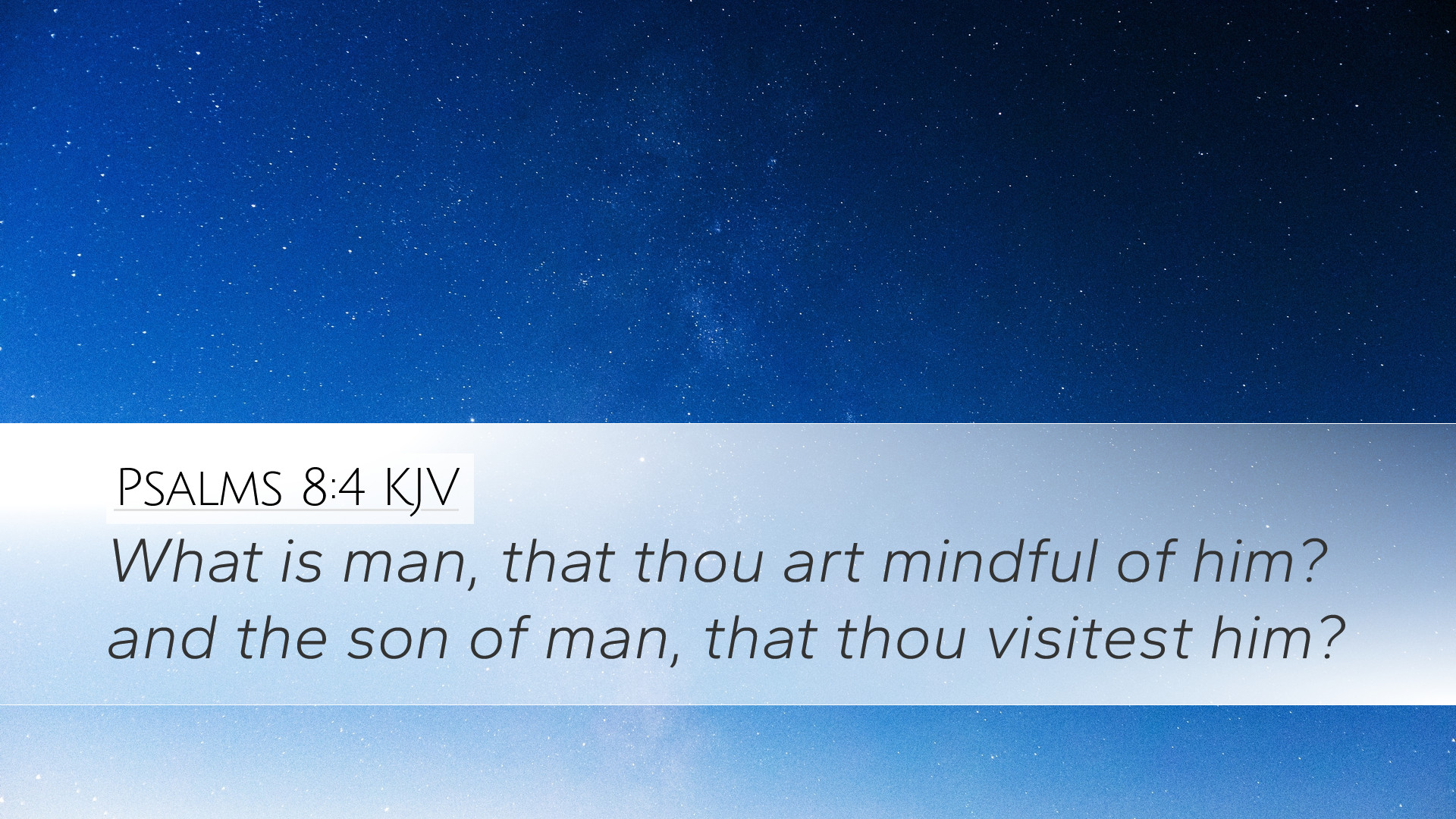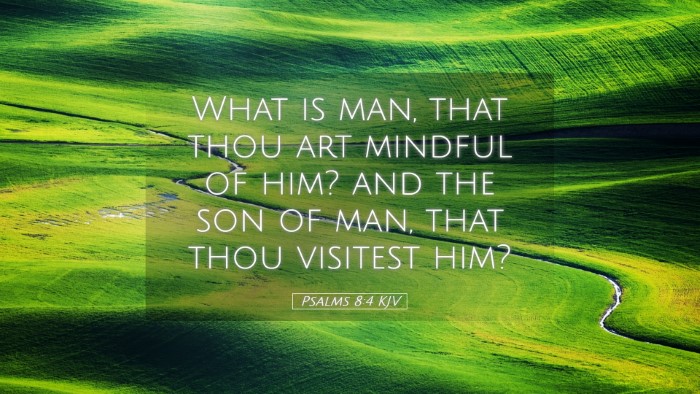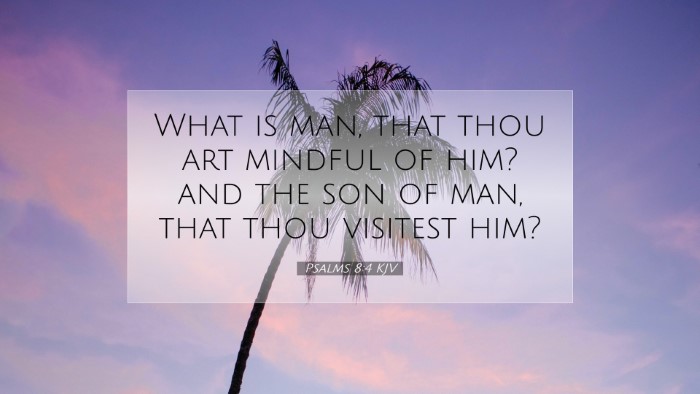Commentary on Psalms 8:4
Psalms 8:4 states: "What is man, that thou art mindful of him? and the son of man, that thou visitest him?" This verse poses profound questions about humanity's position in the vastness of the universe and the significance of human beings in God's eyes.
Understanding the Verse
This verse captures a universal human feeling of insignificance when faced with the majesty of creation. It asks what it is about humanity that warrants God's attention, a question that delves into our identity and value in the grand scheme of God's creation.
Insights from Matthew Henry
Matthew Henry, in his renowned commentary, emphasizes the grace and condescension of God in considering human beings. He reflects on the humility of the psalmist as he marvels at the contrast between the greatness of God and the smallness of man. Henry notes:
- Divine Mindfulness: God's mindfulness of man is a testimony to His grace, as man, being merely dust, does not merit such attention.
- Human Significance: Despite our frailty, man holds a significant place in God's creation, which speaks to the Lord's loving nature.
- Existential Reflection: The psalmist advises believers to meditate on their existence and their role within the divine order.
Insights from Albert Barnes
Albert Barnes further expounds on this verse by pointing out the variability in human recognition of God's focus on man. He suggests:
- The Nature of Humility: Barnes draws attention to the essential humility expressed in the questioning nature of the verse, which encourages believers to recognize their reliance on God.
- God's Care and Provision: He argues that the very questioning indicates an awareness of God’s providential care for humanity, suggesting that human life is not a happenstance but rather part of a divine plan.
- Contrasts in Creation: The commentator underscores the contrast between the Creator and creation, noting that while the heavens proclaim God’s glory, He is still mindful of the beings He created.
Insights from Adam Clarke
Adam Clarke takes a slightly different approach by examining the implications of God's attention on human life. He provides insights such as:
- Philosophical Inquiry: Clarke interprets the verse as a philosophical inquiry into human value and existence that resonates through the ages.
- God's Interest: He devotes attention to the idea that God’s visitation signifies an active involvement in the affairs of humans, displaying an affectionate and personal God.
- Holy Wonder: Clarke encourages believers to adopt an attitude of wonder towards their Creator, fostering a deeper relationship due to the acknowledgment of God’s active interest.
Theological Implications
The theological implications of Psalms 8:4 are enormous, influencing our understanding of human dignity and the nature of God. Various aspects include:
- Human Dignity: This verse asserts that human life bears intrinsic value, reflecting the image of God, and thus, demands dignity and respect.
- God’s Sovereignty: It highlights God’s sovereignty and choice to engage with humanity, inviting us into fellowship despite His omnipotence.
- Existential Inquiry: It provokes ongoing reflections about our purpose, destiny, and relationship with the divine, inviting believers to explore deeper meanings in their faith journeys.
Application for Pastors and Theologians
For pastors, students, and theologians, applying the insights from Psalms 8:4 can lead to several actionable steps:
- Preaching on Identity: Utilize the themes of self-worth and divine mindfulness in sermons to address contemporary issues of anxiety and nihilism among congregants.
- Encouraging Reflection: Foster environments where individuals can reflect on their identity and relationship with God, encouraging deeper personal spirituality.
- Mission and Ministry: Embrace the call to serve as a response to God's mindful engagement with humanity, motivating communal and individual action in outreach ministries.
Conclusion
Psalms 8:4 compels us to ponder the mystery of human existence and God's incredible grace in His attentiveness to our lives. Through the combined insights of Matthew Henry, Albert Barnes, and Adam Clarke, we find a rich tapestry of understanding that enhances our appreciation for both our worth and our responsibility as beings created in God's image. This verse continues to challenge and encourage all who seek to grasp the depth of God's love and the value of human life amidst the grandeur of the universe.


